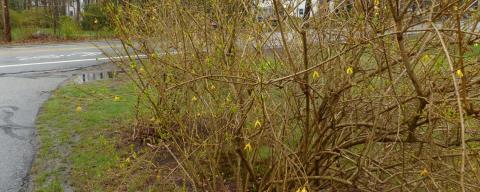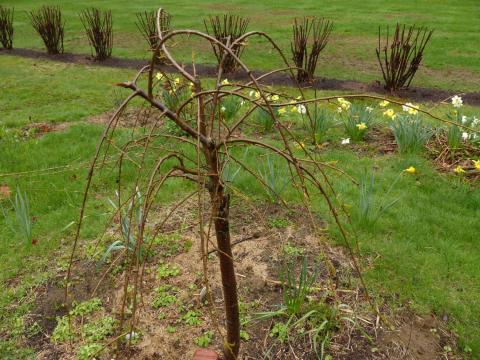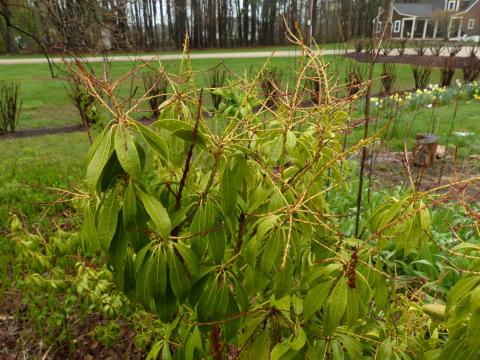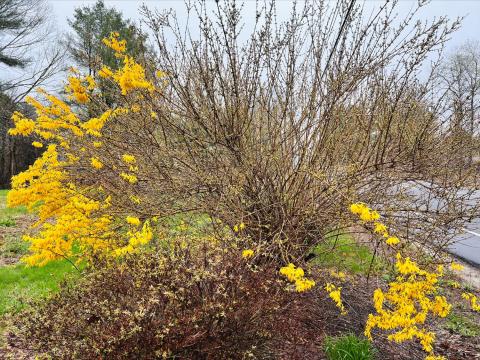Where Are the Blooms? Forsythia, Peaches, Cherries, and Plums
Many people have been wondering why blooming has seemed irregular or even absent this spring for some trees and shrubs, particularly forsythia and stone fruits such as peaches, apricots, cherries and plums. For forsythia or weeping cherries, you may have even noticed blooms occurring only at the end of long branches, creating an interesting “halo” effect. Why is this?
Freeze Damage
The short answer is that these spring-blooming flower buds (that develop on previous year’s growth) suffered freeze damage from the extreme cold temperatures we experienced back in early February. The temperature at which cold injury is likely to occur to flower buds is called the critical temperature, which differs depending on species and the growth stage of the bud. The more developed the bud is (closer to reaching bloom), the less tolerant they are to freezing winter temperatures. Forsythia buds begin to die around -5°F or lower for cultivars that have bud cold hardiness, while stone fruit will be hardy down to about -15°F for peaches and sweet cherries and -20°F or lower for many plum varieties. With temperatures dipping down to -20°F or even lower in some areas of the state in the winter of 2022-2023, this was certainly enough to damage bud tissue. This damage was compounded by the unusually warm weather we experienced in January, which further reduced the cold hardiness of the buds that might have fared better if we had more consistent cold temperatures.
Bloom "Halos"
As for the bloom “halos?” Those buds-turned-blooms were simply covered by a layer of snow and ice, which acts as an insulator that protects them from reaching that critical temperature that killed the exposed buds above the snow cover.
Although forsythia and other early spring bloomers may not have been out in full force this year, continue to look to all the other wonderful flowers that are out now and will bloom later this May!
Do you love learning about stuff like this?
SUBSCRIBE TO Granite State Gardening newsletter
Got questions? The UNH Extension Yard and Garden Infoline offers practical help finding answers for your yard and garden questions.
Call toll free at 1-877-398-4769, Monday to Friday, 9 a.m. to 2 p.m., or fill out webform.



